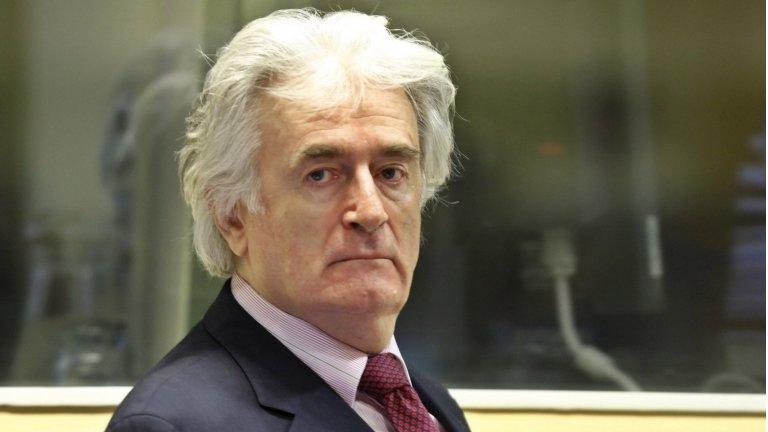Mixed reaction to Radovan Karadzic verdict in Bosnia
- Published
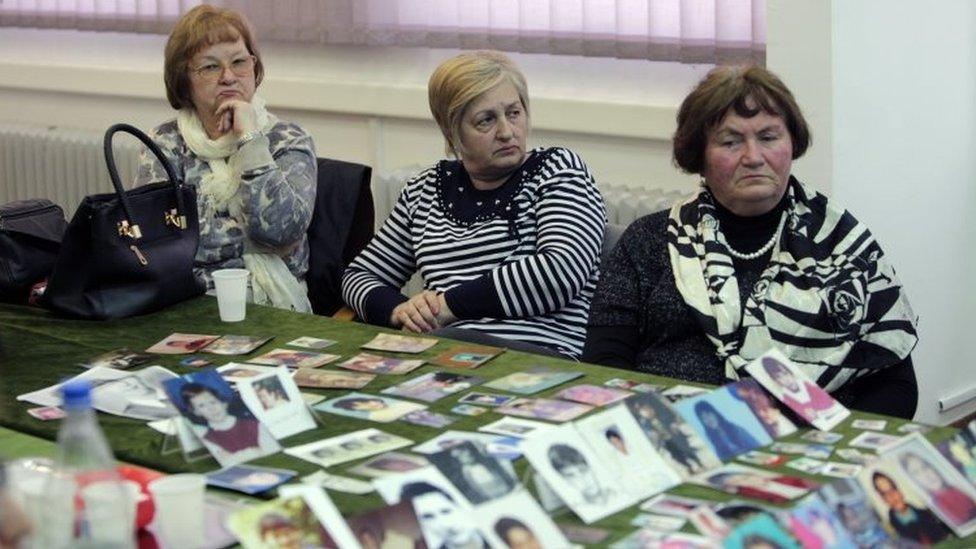
Relatives of the victims of the 1992-95 Bosnian war watched live in Sarajevo as The Hague tribunal was delivering its verdict
The big screen in front of Sarajevo's BBI Centre did not show the Karadzic verdict live in the end. A management decision, we were told.
Perhaps it was concluded that unlike, say, Bosnia's first appearance in the World Cup, a genocide trial was unlikely to put shoppers in a feel-good, spending mood.
Nevertheless, local and international television crews were out in force: interviewing passers-by on the plaza and filming over the road, at the monument to the hundreds of children killed during the four-year siege of Sarajevo.
Ramiz Holjan paid his respects the day before the verdict. His 13-year-old son, Admir, died in a grenade attack in 1992, as he met friends on a Sarajevo street.
"Radovan Karadzic has a title," says Ramiz, after he kisses a small photo of Admir. "The biggest criminal in the Balkans."
Now the Hague Tribunal has added its considerable judicial weight to widely-held opinion. Guilty verdicts for genocide, crimes against humanity and war crimes resulted in a 40-year sentence for the former Bosnian Serb leader.
Ethnic Serb reaction
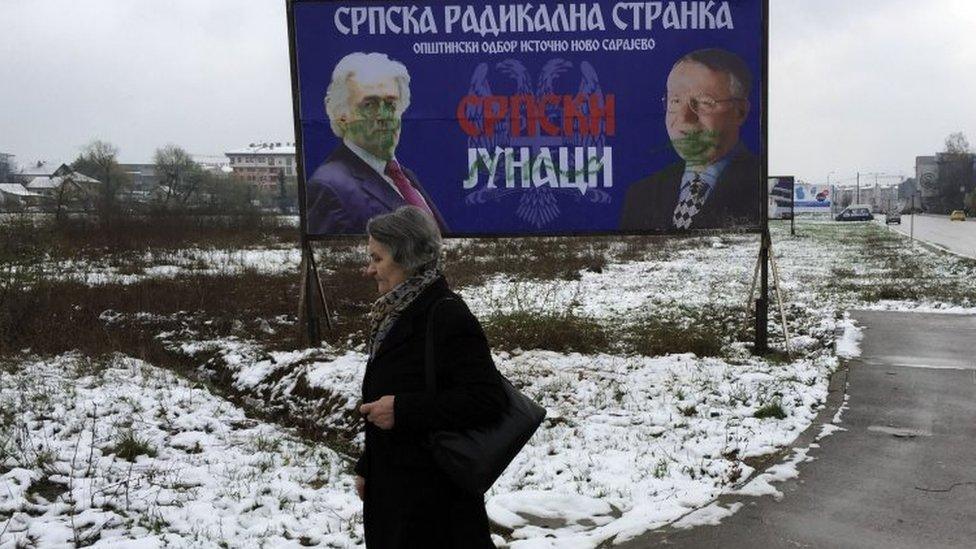
Karadzic - alongside with radical Serbian politician Vojislav Seselj - are seen as heroes by many ethnic Serbs in Bosnia
The current chairman of Bosnia's three-person Presidency, Bakir Izetbegovic, was convinced it was a significant day, with broad implications.
"This is a very important verdict not only for my country, but for the Balkans, for the victims, perpetrators, and the entire world.
"After everything that happened in Bosnia, this verdict is not against one person, but against an idea, against the politics which caused such suffering," Mr Izetbegovic said.
It is not a universally held view.
In Pale, on the outskirts of Sarajevo but now part of the mainly ethnic Serb Republika Srpska, government officials recently named a student hall of residence in honour of Karadzic.
This town was his wartime headquarters - and veterans of the conflict struggle to view their former leader as a war criminal.
"More than 500 witnesses testified from both sides, and not one of them gave evidence that would corroborate the charges against Karadzic," says Mihailo Paradjina, the president of the Pale Veterans Association.
"The army was not aware of any order given by Karadzic that would go against international humanitarian law. A person who was a poet, a humanist, a doctor - it's hard to imagine how he would give such an order," Mr Paradjina added.
'Important verdict'
Radovan Karadzic listened intently as the verdict and sentence was read out
But it would be wrong to suggest that all ethnic Serbs feel the same way.
Many Bosnians were proud of the harmonious, multi-faith society they enjoyed before the conflict. And though optimism is thin on the ground that those days might return, the Karadzic verdict has offered a glimmer of hope.
"I'm not sure that the impact today, tomorrow or in the coming year will be something special or good for my country," says Dragan Miokovic, an ethnic Serb former police investigator who testified against Radovan Karadzic.
"But for my children and my grandchildren, it's very important. All of us Bosnian citizens knew what happened in the 1990s here - but we needed to have it on paper, with a stamp. Because of that the verdict is very important."
And the verdict confirmed that Radovan Karadzic was responsible for the deaths of more than 5,000 civilians during the siege of Sarajevo - an estimated 1,600 of them children, including Ramiz Holjan's son, Admir.
But he insists that despite his family's enduring grief, there is hope for better days.
"I have a motto," he says. "They have not taught me to hate. I do not teach hate. I caution about the past in order for everyone to have a better future."
- Published24 March 2016
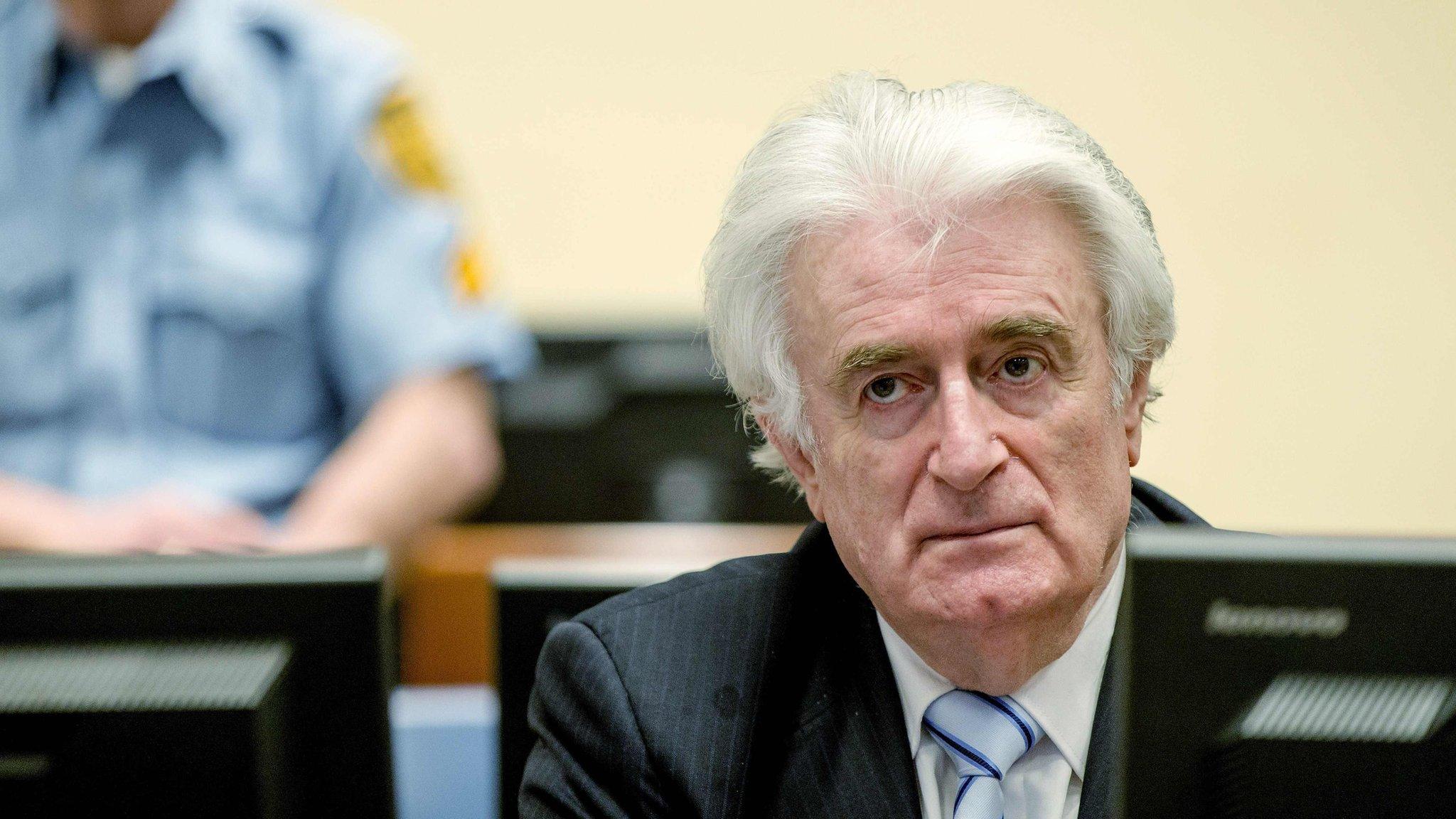
- Published24 March 2016
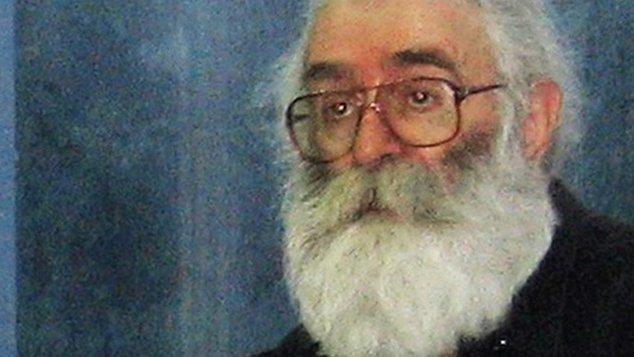
- Published24 March 2016
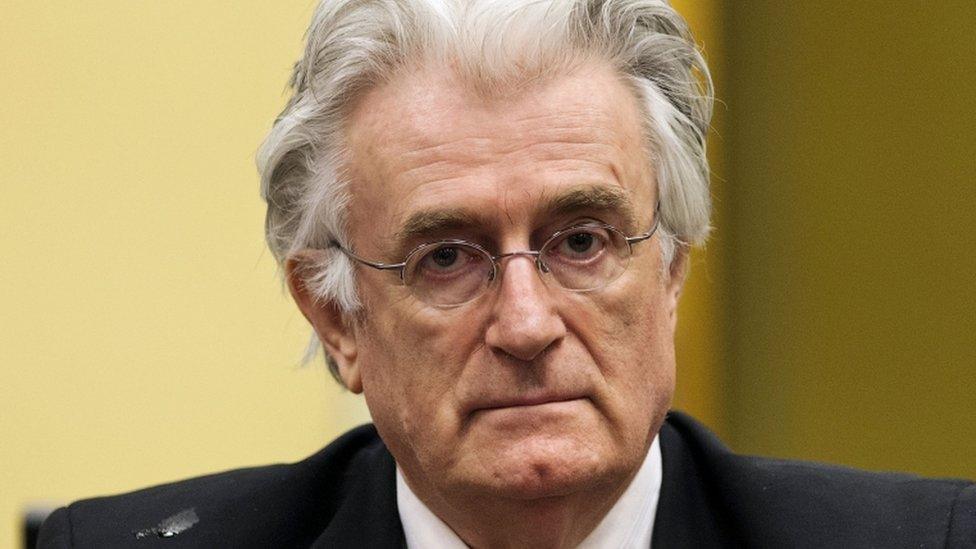
- Published24 March 2016
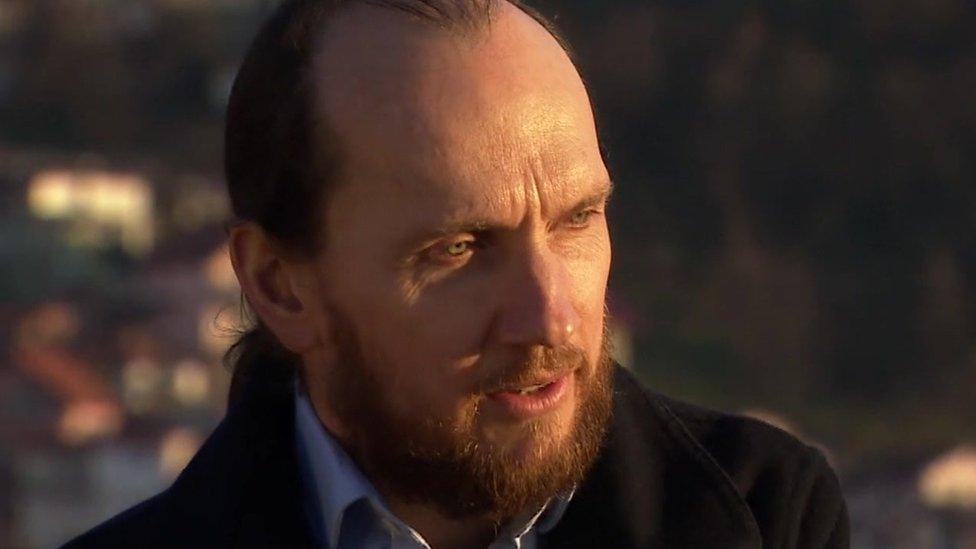
- Published18 March 2016
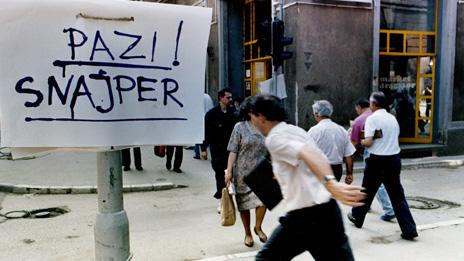
- Published16 October 2012
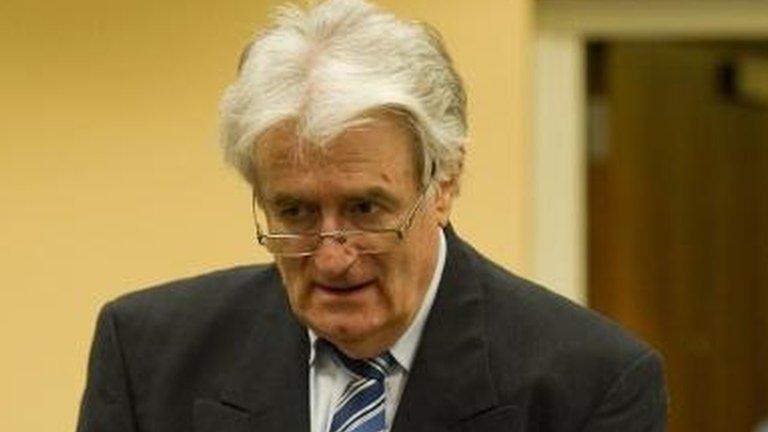
- Published24 March 2016
